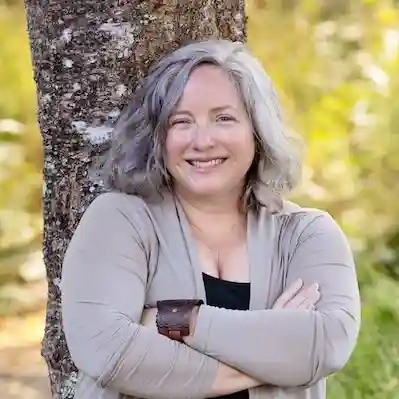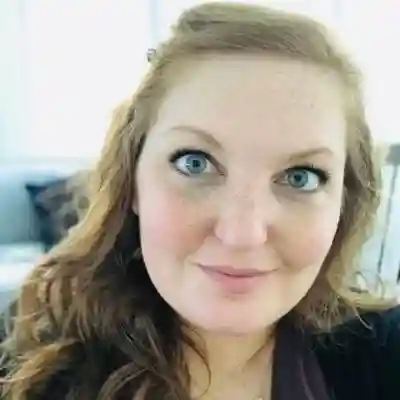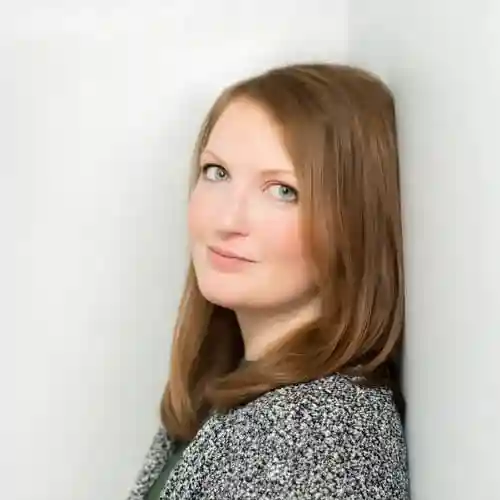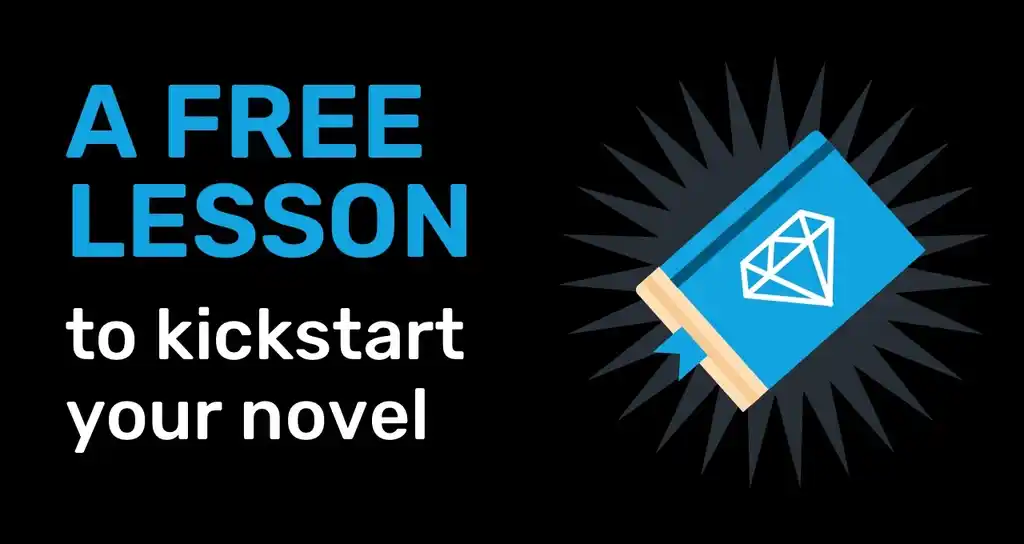Understanding Development Fiction Editing with Aja Pollock
22:12 EST - Jul 18, 2017
This transcript of Aja Pollock's ReedsyLive talk on developmental fiction has been edited for clarity and length. The processes and opinions expressed are Ajas and may not reflect the practices of all Reedsy editors.
Developmental editing is about making your book the best possible version of itself. Fundamentally, we editors are trying to make your book the very best it can be. If something can be improved, your development editor is going to improve it themselves or push you to do it. That means nothing is sacred.
What does a developmental editor do?
So on the macro level, we're talking about plot development, character development, pacing. Is your book dragging at a certain point in the middle? Should we tighten this up? Do we need to talk more about a certain subject or describe something more? Is your plot unfolding believably? Is the narrative arc working? Is your character development believable? If they come to a big epiphany on page 100, are they still acting in a way that's consistent with that on page 200?
On the micro level, we are getting down and working on crafting language at the sentence and paragraph level. We want it your manuscript to sing. Editors want it to sing so bad. We live for that. So we will weigh every word, look at the way every sentence is arranged, see how every paragraph flows, and we will rewrite as we see fit. That's why you're hiring us. You're hiring an expert to elevate your writing, so that's what we will do.
Now that does not mean that the editor becomes the author of your book. We're not looking to go in there and write our book or write your book the way we would write it. So the idea is that with a really good development editor, even just a passable development editor, we will get into your head and make sure all changes are within the parameters of your style as the author. Your name will be on the cover, not ours, so it's gotta stay your book. So the idea is to elevate your writing within your voice.
What does a developmental editor NOT do?
A development edit does not involve copy-editing. Understandably, this is the source of much confusion among authors. Development editing always comes before copy-editing. That's where a lot of substantial change is going to happen. You certainly don't want to be doing micro editing, which is what copy editing is, on any text that isn't final.
With development editing, the edits are essentially subjective. You're hiring a development editor for their expert opinion, but everything we do is still an opinion. I can't quantify for you why this word choice over that word choice would be better, or why your sentence isn't flowing perfectly the way it is. I can't do anything objective that will justify my opinion on that. You're just taking my word for it hopefully.
When you're working with the development editor, you will always be able to review everything, of course. You may not agree with their changes and suggestions, so you will always have the option to keep it the way it was. It's been brought to your attention, and you've been given options about how to handle it.
A brief look at copy-editing
Copyediting, on the other hand, is all about objective correctness: grammar, syntax, fact-checking, continuity. If the guy's wearing a blue shirt on page 100, he's gotta still be wearing that blue shirt on page 125 unless he's had a wardrobe change. Any changes made will be supported by grammar rules, dictionary definitions.
Of course, a good copy editor knows when to let the rules relax a little, especially with things like comma usage: you don't want to break up the flow just because you're applying arbitrary rules. But in general, the copy editor is looking at rule-based changes and focusing on clarity and readability, not quality, which is what a development editor is looking at.
Traditional Publishing vs. Self-Publishing
With a traditional publisher, the author will almost always start by getting an agent. I know authors will be sad to hear this: we all dream of just sending manuscripts straight to a publisher, who will read them and directly acquire out books. But the reality is that publishers can't do that. Most of them don't even take unsolicited submissions, and they don't have time to look at them when they do get them.
So the reality is, that the development editing process will, to some extent, probably start with your agent. That's the person who wants to get your book sold, so they will likely have ideas to make it better suit particular editors or the market, or make it more generally better.
Once your book is acquired, either your acquisition editor — the person who brings your book into the publisher — or their staff will handle the editing in-house. And it varies really widely how that process works now. Plenty of times, authors will get a romantic notion that they'll find this editor who gets you and gets your book, and there will be this back and forth over coffee and cigarettes or whatever. And sure, plenty of times this does still happen, but the reality is that the further down the totem pole you are the less likely this will happen.
The reality is that editors are strapped for time. My mentor at Simon & Schuster used to say, "Editors are not rewarded for editing. They are rewarded for marketing." The way they move up the ladder is by selling books, and they are super strapped for time. And since they're often really overloaded, some development tasks tend to devolve down to freelance copy editors. No copy editing is done in-house at a traditional publisher. It's all farmed out to freelancers. And line editing in particular, which is the fine detail work of crafting sentences and things like that. That sometimes falls to copy editors these days.
How hands-on your editor is will depend on your position in the publishing house, your editor's position, the kind of time they have, and the connection you have.
With self-publishing, we are in the Wild West. You and I are making this up as we go along. But thankfully, with editing, we've got the tradition model as a foundation to work from. We professionals know what's standard in the publishing world and we are working to adapt these processes for self-publishing authors.
When I'm doing a development edit, I generally do three reads of the manuscript. The first one is an initial read through without really editing anything. I'm just looking for macro-type issues. The character development, plot arc, those big things. If there's something big that the author needs to address with some re-writing, then I want that to happen before I start editing, because otherwise, you're paying me to edit things that will otherwise change.
To find out the average cost of professional editing, there's an article Reedsy published that will give you some great ballpark figures.
Can you get a fiction book deal without an agent?
I'm sad to tell you that the chances are pretty slim. However, if you self-publish first and have a lot of success — you might find that a publisher will want to jump on board. That happens a lot, actually. I've worked on a lot of books through publishers that have been picked up that way. I worked on the Hugh Howey's Wool series, and that was famously self-published to start with. Simon & Schuster picked it up, and that's how it came to me.
But in general, you're not gonna just submit a book straight to a publisher and cut out an agent. It's just not the way things are done.
When should you get a developmental edit?
A pretty common question is, "how do I know I'm ready to start the editing process?"
Not after the first draught, guys! Not after the first draught!
When you've completed your first draft, you've finished the writing part of the process and the story is complete. But that doesn't mean you're done. So get up and walk away from the computer. Catch up on your stamp collection or your macrame or go see your friends and family who have been wondering where the heck you've been the entire time you've been sitting in your house writing your book or your coffee shop or wherever you've been.
You need to step away from the novel and get some distance before you move into the editing mindset. Take a week. Take longer if you can stand it. I know you guys are always like rearing to get this thing on the road, but take time away from it. Then come back to it and start doing some editing passes.
Go through it and start reading it as a reader and not just as a writer. I know this is hard, but try to forget the extra material that you have in your mind. You may have a crystal-clear image of the protagonist's house in your imagination, but if it didn't make it onto the page, you have a big gap to fill.
Once you've taken a few editing passes, ask people to read it. Ask people you trust. People who will understand the kind of work you're doing. Get some good feedback from them, and then consider getting an editorial assessment. I have no skin in the game, as I don't do editorial assessments, so it's no advantage to me. It will give you a broad sense of your strengths and weaknesses, where you're positioned for your market. You will get some helpful stuff that could lead to more editing that you want to get out of the way before you get to development editing. Remember, you want to get it into the most advanced state you can manage before passing it to the development editor. It will be more economical, and it will get you farther along in the process when your edit is done.
Get in the right mindset for a developmental edit
Before you get to development editing, you've gotta prepare mentally for that process. Your book is something that's only been living in your head up until now or shared with friends. It can be really, really hard to have an outsider coming at you with criticism. It's really hard. So you've gotta be ready.
Just know this: as editors, all our criticism comes with love. I know you will get your manuscript back and be like, "Oh my God, this is exploding with red. This person must've hated this book." Those things are unrelated. It's our job to get it to be the best it could be. So just because it looks like we've done a lot of work, it doesn't mean your manuscript is not great and that we don't like it. Be ready to accept all of that change.
Don't send sloppy requests
Here's a tip for requesting offers from freelancers on Reedsy: be sure to do your homework and do basic proofing on your submission. Run spell check! Don't leave dopey typos in there. When we look at a request and a sample that's sloppy and we're trying to figure out how much to charge you for it, guess what? We're gonna charge you more if we think we have to do a lot of work.
We're never expecting something to look perfect, but when you submit a brief to us — and I see this so much — don't just tell me what a terrible writer you are and what a mess everything is. We know you need help, that's why we exist, and that's why you're coming to us. Tell us stuff about yourself. Certainly be honest about what you think of the weaknesses, but tell us the strengths, too. Tell us your vision, and tell us where you think the book is at right now.
What if a developmental edit is too expensive?
So another thing I hear a lot is that people can't afford development editing. I get it. Development editing is expensive. I know that because it's part of what allows me to survive in the world. We charge for the amount of time we're spending and we spend a lot of time.
So what I say to people who can't afford development is that the book world is really very crowded, and it really takes quality to stand out — whether you're trying to get a publishing deal or you're trying to self-publish. But if you really don't have the budget, try getting an editorial assessment. That will, at least, give you the big picture stuff and show you what you can edit down from there and perhaps get you to the point where you are ready for copyediting. It will at least give you a sense of where you are and how much work you need.
So I would recommend that if a developmental edit is simply not in your budget.
2 Tips for Authors
These are just general issues that I see a lot as an editor. Things that you can keep an eye out for as a writer to get a little ahead of the game.
Show, Don't Tell
This is writing's most famous cliché, but man, people really, really like to tell without showing. Don't just describe what people are talking about in a conversation. Don't say that, "Jeff told Anna that he had to have her answer by 5:00 PM on Sunday, otherwise their relationship was through. And Anna said that she wasn't gonna take an ultimatum." Okay. Stop. Give us the conversation: Jeff says, "Anna, you must give me your answer by" ... Give us the dialogue! Put us there. Don't just describe what's happening, show us what's actually happening.
Don't just say, "The valley was beautiful." What's beautiful about it? Is it rolling with fields of flowers? Is it a verdant green? You're looking at the majestic hills in the distance. Set the scene for us. I think sometimes writers have the image so set in their heads that they forget that they have to put it on to the page.
Write dialogue the way people speak
For Pete's sake, guys! You wouldn't believe how much dialogue I see that doesn't have contractions in it. When you speak, you use contractions. You don't say, "I will not help you today." You say, "I won't help you today," or, "I can't help you today." You have to write the way people actually speak.
That's a big one because that's a giant red flag of amateur writing is that you're not getting dialogue that reflects natural speech. A helpful way to make sure that it is is just read it out loud. Sit down with someone else and read it aloud. And especially if you have a back and forth dialogue, have two people read it aloud and hear if it sounds like normal human beings speaking. If it doesn't, back to the drawing board!
To work with Aja on your next book, head to her profile on the Reedsy Marketplace. If you have any questions about this talk or developmental editing in general, drop a message in the comments below.





